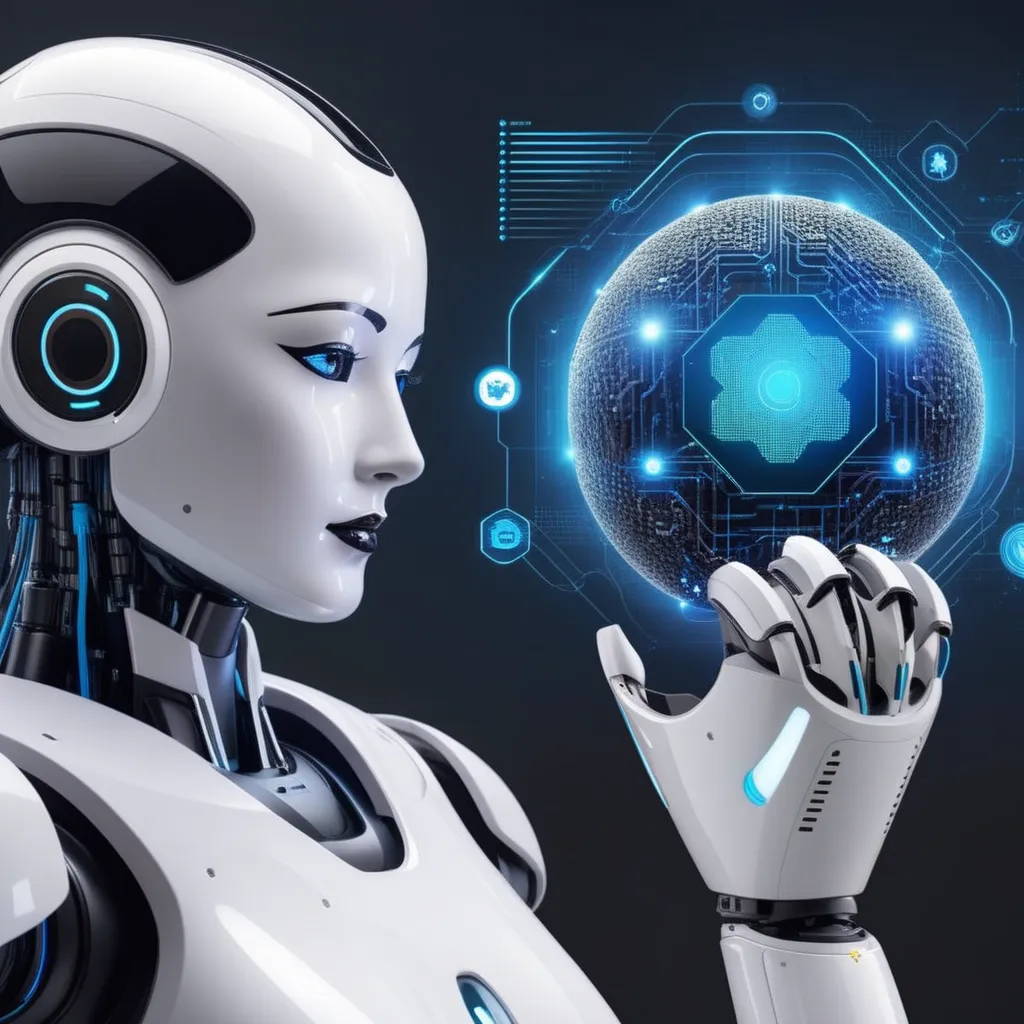The Integration of AI in Everyday Life
Artificial Intelligence (AI) is no longer a concept from science fiction; it's now an integral part of our daily lives. As someone who has witnessed the evolution of AI firsthand, I can attest to its growing influence on how we work, live, and interact with the world. In this article, we'll explore the integration of AI in everyday life, discussing its applications, benefits, and potential challenges.

The AI Revolution: A Personal Encounter
Before we delve into the details, let me share a personal story. A few years ago, I was introduced to a virtual assistant powered by AI. At first, it was a novelty—a voice-activated tool that could answer questions and perform tasks. But as I integrated it into my daily routine, I realized how it was becoming an essential part of my life. It helped me manage my schedule, find information, and even control smart home devices. It was my first taste of how AI could simplify everyday tasks.
That experience left me intrigued and eager to explore the broader implications of AI in our lives.
The Expanding Role of AI
AI is not confined to research labs or tech companies; it's infiltrating nearly every aspect of our daily existence. Here are some key areas where AI is making an impact:
1. Virtual Assistants
Virtual assistants like Siri, Alexa, and Google Assistant have become household names. They can answer questions, set reminders, and control smart devices, making our lives more convenient.
2. E-Commerce and Recommendations
When you shop online or stream content, AI algorithms analyze your preferences and behaviors to provide personalized product recommendations and content suggestions.
3. Healthcare
AI is transforming healthcare through applications like predictive analytics for disease prevention, diagnostic assistance, and robotic surgeries that enhance precision.
4. Education
AI-powered educational tools offer personalized learning experiences, adapting to students' needs and providing instant feedback.
5. Autonomous Vehicles
Self-driving cars are becoming a reality, with AI algorithms navigating and making split-second decisions to ensure safety.
6. Finance
AI is used for fraud detection, algorithmic trading, and even personalized financial advice through robo-advisors.
7. Language Translation
AI-powered translation services are breaking down language barriers, making it easier to communicate across the globe.
8. Entertainment
AI-driven content creation, such as deepfake technology, is reshaping the entertainment industry.
The Benefits of AI Integration
The integration of AI into our lives offers several compelling benefits:
1. Efficiency
AI can automate repetitive tasks, allowing us to focus on more meaningful and creative endeavors. For instance, chatbots can handle routine customer service inquiries.
2. Personalization
AI tailors experiences to individual preferences, whether it's recommending books, music, or news articles.
3. Accessibility
AI makes technology more accessible to people with disabilities, enabling voice commands, screen readers, and other assistive features.
4. Safety
In fields like transportation, AI can enhance safety through advanced driver assistance systems (ADAS) and accident prevention.
5. Healthcare Advancements
AI is accelerating medical research, improving diagnostics, and helping healthcare professionals make more informed decisions.
Challenges and Considerations
While AI integration brings significant benefits, it also raises important challenges and considerations:
1. Privacy
AI relies on vast amounts of data, which can raise concerns about data privacy and the potential for misuse.
2. Bias and Fairness
AI algorithms can inadvertently perpetuate biases present in training data, leading to biased outcomes in areas like hiring and lending.
3. Job Displacement
Automation driven by AI may lead to job displacement in certain industries, requiring reskilling and workforce adaptation.
4. Ethical Dilemmas
AI introduces ethical questions, such as the ethics of AI in warfare and the responsibility of AI creators for the consequences of their creations.
Embracing the Future
The integration of AI in everyday life is an ongoing transformation that holds immense promise. To navigate this future effectively, here are some tips:
1. Stay Informed
Stay updated on AI developments and how they impact your industry and daily life.
2. Advocate for Ethical AI
Support responsible AI development by advocating for ethical guidelines and transparency.
3. Embrace Lifelong Learning
As AI reshapes job roles, continuous learning and adaptability are essential skills.
In conclusion, the integration of AI in everyday life is no longer a distant dream; it's our reality. From simplifying daily tasks to advancing healthcare and education, AI is changing the way we live and work. Embracing this technology while being mindful of its challenges will allow us to harness its full potential and shape a better future.

No comments:
Post a Comment